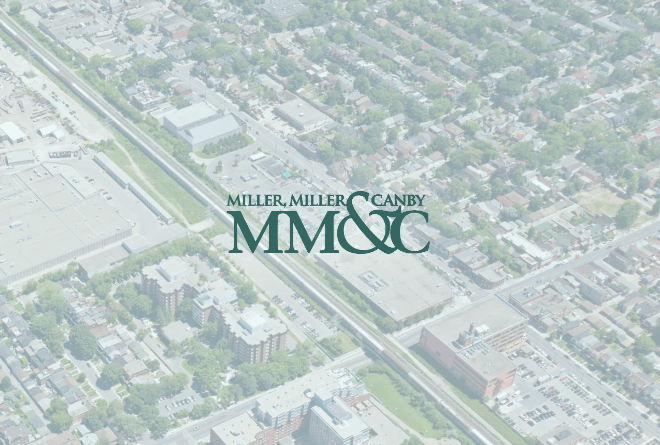DISCLAIMER: THE CASES AND RESULTS DESCRIBED HEREIN ARE REPRESENTATIVE OF PAST RESULTS OBTAINED BY MILLER, MILLER & CANBY, AND ITS ATTORNEYS. PAST CASE RESULTS DO NOT GUARANTEE FUTURE RESULTS. ALL CASES ARE DISTINCT AND HAVE UNIQUE FACTS, CIRCUMSTANCES AND LEGAL QUESTIONS THAT MUST BE CONSIDERED AND EVALUATED ON THEIR OWN MERIT.

Chod v. Montgomery County Board of Appeals
Circuit Court for Montgomery County, Case No. 398704-V: On behalf of a local commercial property owner, Ms. Feuerherd challenged the Water Quality Protection Charge (also known as a “rain tax”), through the administrative appeals process to a successful appeal in the Circuit Court for Montgomery County.

Montgomery County v. Phillips
445 Md. 55 (2015): Before the Court of Appeals of Maryland, Ms. Feuerherd briefed and argued on behalf of owners of a family farm, and persuaded a majority of the Court that Montgomery County overcharged its farmland transfer tax in violation of the state tax cap.

Tomares, et ux. v. Poss, et al.
Circuit Court for Montgomery County, Case No. 418365V: A family retained Ms. Feuerherd and Miller, Miller & Canby after an old gravel road, which provided the sole access to their property, was cut off by a neighbor who challenged that the road was a private driveway. Navigating through 230 years of state, county and railroad records and title history, together with a myriad of expert and lay witness testimony and complex legal issues, Ms. Feuerherd successfully proved that the gravel road was indeed a public road dating back to 1793.

Baltimore City v. Kevin Davenport
Circuit Court for Baltimore City, Case No. 24C18005103: Ms. Feuerherd represented a couple who had owned and operated and/or leased a corner grocery store for more than 25 years, before Baltimore City targeted the property for condemnation. Prior to the jury trial, the City’s offer to purchase the property was just $36,000. But the grocery store was income-producing rental property, with a second floor having potential for residential apartments; capitalizing on this value, Ms. Feuerherd successfully persuaded the jury to return a verdict of $196,250.
Subscribe to our Legal News & Notes Newsletter!
Receive quarterly emails with the latest legal news and firm highlights directly to your inbox. SUBSCRIBE
